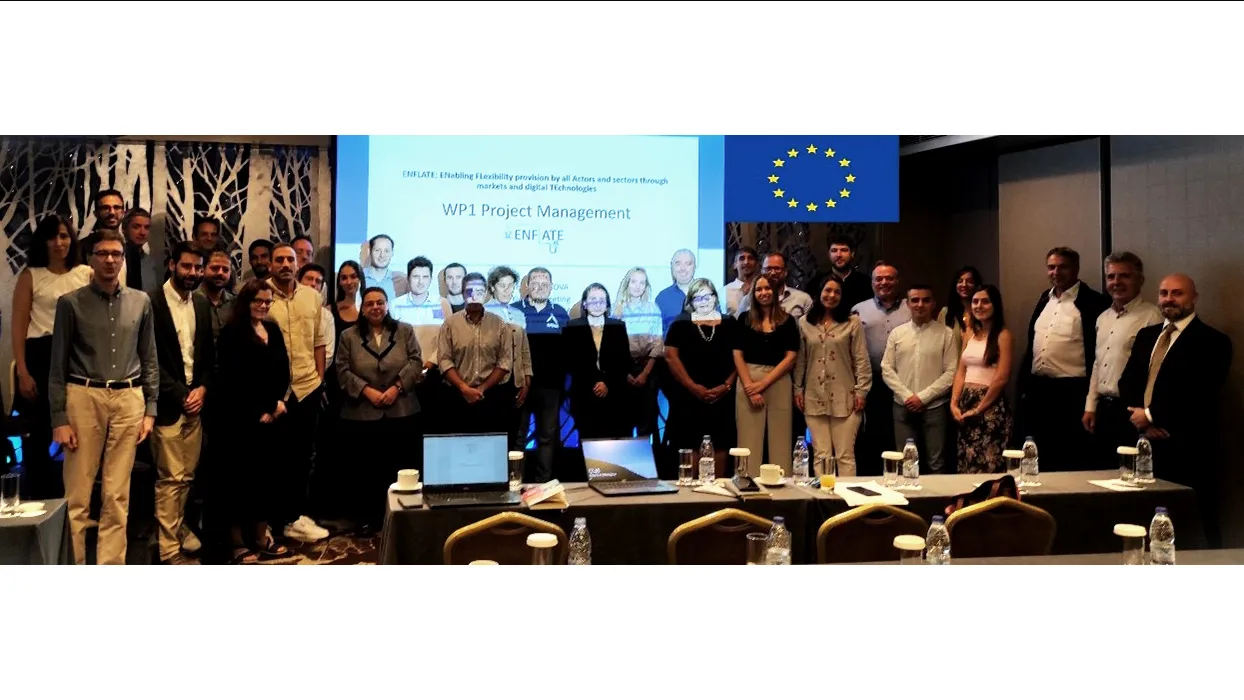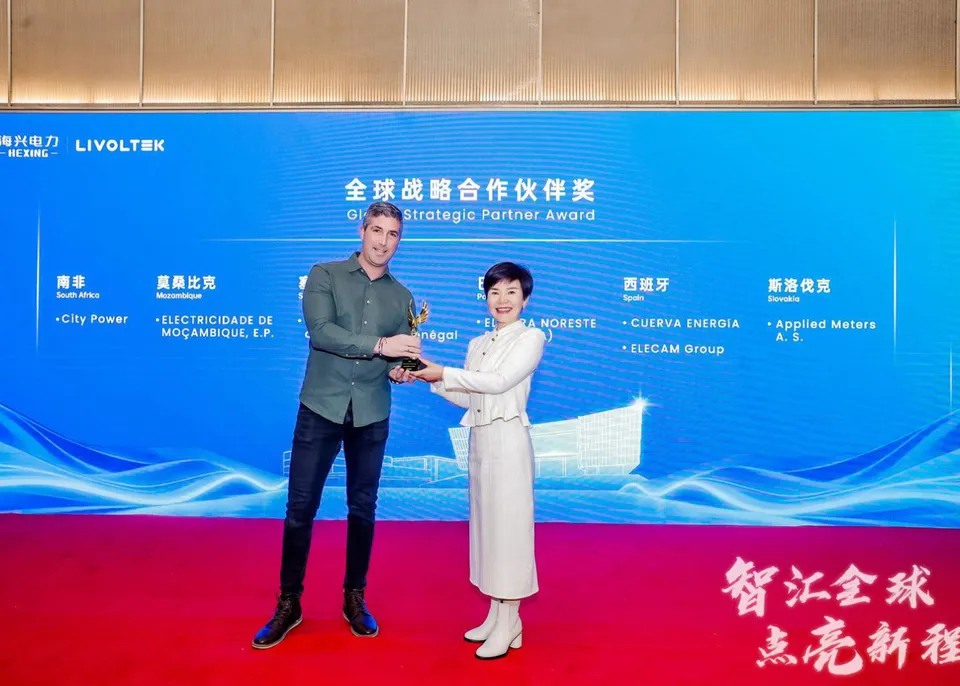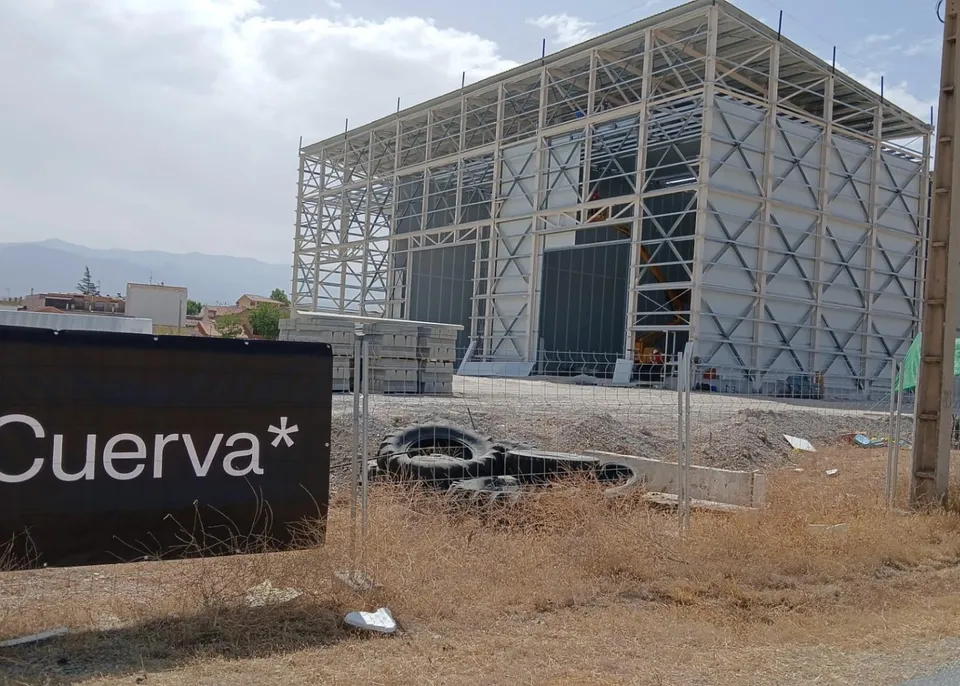Cuerva takes part in the European project ENFLATE

“ENabling FLexibility provision by all Actors and sectors through markets and digital TEchnologies.“
Launch of the ENFLATE project took place at the Raddison-Blue Hotel in Athens, Greece, on 14 and 15 September 2022. The 30 members of the ENFLATE consortium from Greece, Belgium, Germany, France, Spain, Sweden, Bulgaria and Switzerland were welcomed by the event organisers and moderators: Anastasis Tzoumpas, UBITECH Energy (BE), Louiza Kachrimani, NOVA (GR) and Dr. Ioannis Markopoulos, NOVA (GR).
ENFLATE is primarily funded with € 7,686,305.00 from the European Commission through its Research and Innovation Programme HORIZON EUROPE. The total execution budget amounts to € 14,314,162.00.
ENFLATE aims to foster shared use of renewable energy sources and greater penetration of clean energies into the electrical systems while reducing grid operation costs and increasing their profitability. Electronic and data-based digital technologies will enhance the flexibility and robustness of local, regional, national and cross-border transmission networks.
ENFLATE strengthens TSOs, DSOs, market operators, regulatory authorities, service providers, manufacturers, academics and consumer/prosumer interest groups to utilize innovative smart-grid technologies, peer-to-peer market platforms for consumers/prosumers and cross-vector flexibility services in the healthcare and mobility sectors.
Over its 48-month execution period, ENFLATE will enhance existing consumer-oriented flexibility platforms by using a variety of digital tools to create its new, highly-interoperable ENFLATE platform with other Horizon 2020 and Horizon Europe platforms such as ONENET, CoordiNET, SmartNet and INTERRFACE to leverage the advantages of data exchange and adaptable middleware architectures that will be tested in large-scale demonstrations in Bulgaria, Greece, Spain, Sweden and Switzerland. In a nutshell, ENFLATE will provide the means for effective control of energy exchange at regional, national and international interconnection points, improved communication among distributed energy sources, increased consumer/prosumer participation in the energy market process and the sustainable development of new multisector business models that harness the involvement of consumers/prosumers in profitable energy trading.



.webp)
